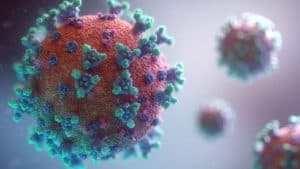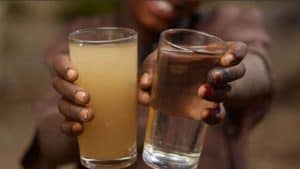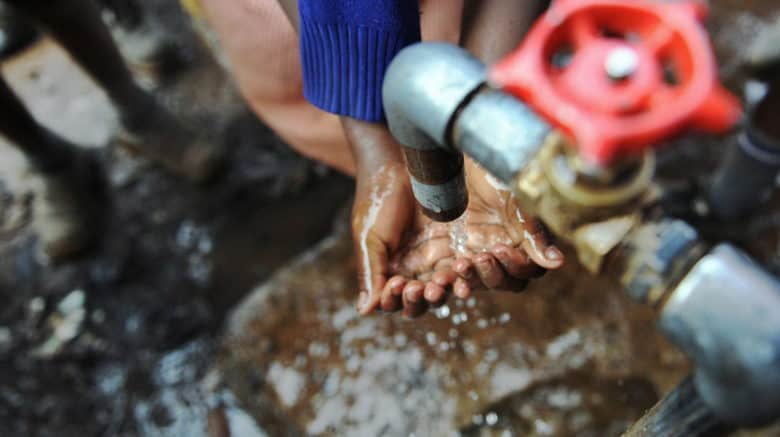 Greetings all and I hope and pray you and your loved ones are safe and sound in this era of coronavirus. Let us all be careful, maintaining social distancing, and let’s please keep washing our hands, as it is one of the best and simplest preventative measures we can easily take.
Greetings all and I hope and pray you and your loved ones are safe and sound in this era of coronavirus. Let us all be careful, maintaining social distancing, and let’s please keep washing our hands, as it is one of the best and simplest preventative measures we can easily take.
That is, unfortunately, not so for hundreds of millions of people around the world. In fact, billions of people still lack safe water, sanitation and handwashing facilities. Data suggests that in 2017, some 60 per cent of people worldwide and only 38 per cent in least developed countries had a basic handwashing facility with soap and water at home, leaving an estimated 3 billion people without basic handwashing facilities at home.
 As we approach the World Water Day this Sunday, March 22, and in this era of the coronavirus, we at RipplAffect are keen to spotlight the decisive function of water not only for safe drinking, but also for sanitation, hygiene and health. This connection between water, sanitation and hygiene is crucial and indissoluble! We are also keen to invite you to join forces with us, with the United Nations, vast number of non-governmental humanitarian organizations, and the whole international community in general to help with water conservation efforts, sustainable water management practices, and most immediately important, to provide the millions of women, children and men who do not have safe water for drinking, sanitation nor adequate hygiene. Please donate whatever means you can by becoming a monthly donor.
As we approach the World Water Day this Sunday, March 22, and in this era of the coronavirus, we at RipplAffect are keen to spotlight the decisive function of water not only for safe drinking, but also for sanitation, hygiene and health. This connection between water, sanitation and hygiene is crucial and indissoluble! We are also keen to invite you to join forces with us, with the United Nations, vast number of non-governmental humanitarian organizations, and the whole international community in general to help with water conservation efforts, sustainable water management practices, and most immediately important, to provide the millions of women, children and men who do not have safe water for drinking, sanitation nor adequate hygiene. Please donate whatever means you can by becoming a monthly donor.
To commemorate World Water Day please support RipplAffect’s efforts to distribute personal or household water filters to families who lack clean water. Become monthly Donor by donating today safely through our donation form.
Thank you so much for your continued support!
DONATE NOW
Sunday March 22 is World Water Day
In 1977, the United Nations began coordinating activities on water. Subsequently, in 2003, the subcommittee was transformed into UN-Water. Efforts to inspire action include coordination of the annual observance of World Water Day on which UN-Water releases the annual World Water Development Report.
World Health Organization June 14, 2019
-
785 million people lack even a basic drinking-water service, including 144 million people who are dependent on surface water.
-
Globally, at least 2 billion people use a drinking water source contaminated with faeces.
-
Contaminated water can transmit diseases such diarrhoea, cholera, dysentery, typhoid, and polio. Contaminated drinking water is estimated to cause 485 000 diarrhoeal deaths each year.
-
By 2025, half of the world’s population will be living in water-stressed areas.
-
In least developed countries, 22% of health care facilities have no water service, 21% no sanitation service, and 22% no waste management service.
In 2010, the UN General Assembly explicitly recognized the human right to water and sanitation. Everyone has the right to sufficient, continuous, safe, acceptable, physically accessible, and affordable water for personal and domestic use.
Some 829 000 people are estimated to die each year from diarrhoea as a result of unsafe drinking-water, sanitation, and hand hygiene. Yet diarrhoea is largely preventable, and the deaths of 297 000 children aged under 5 years could be avoided each year if these risk factors were addressed. Where water is not readily available, people may decide handwashing is not a priority, thereby adding to the likelihood of diarrhoea and other diseases.
Economic and social effects
When water comes from improved and more accessible sources, people spend less time and effort physically collecting it, meaning they can be productive in other ways. This can also result in greater personal safety by reducing the need to make long or risky journeys to collect water. Better water sources also mean less expenditure on health, as people are less likely to fall ill and incur medical costs, and are better able to remain economically productive.
With children particularly at risk from water-related diseases, access to improved sources of water can result in better health, and therefore better school attendance, with positive longer-term consequences for their lives.
As the international authority on public health and water quality, WHO leads global efforts to prevent transmission of waterborne disease, advising governments on the development of health-based targets and regulations.
